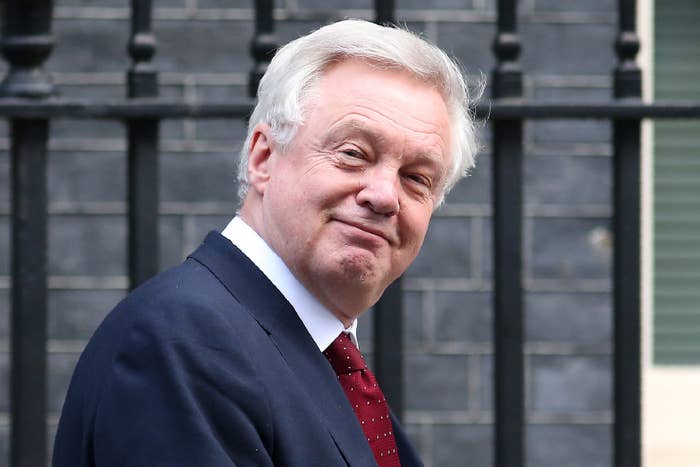
The government hasn't done an assessment of the costs to Britain's economy of crashing out of the European Union in two years without a new deal, the Brexit minister David Davis told MPs today.
Testifying before the Commons Brexit committee, Davis said the government's policy of "no deal is better than a bad deal" wasn't underpinned by a detailed economic study.
"I have a fairly clear view of how it will work out, but I just haven’t quantified it yet," Davis told the MPs.
In January, setting out her priorities for the Brexit negotiations, Theresa May warned Brussels that Britain is willing to leave the EU in 2019 without agreeing a new economic relationship if the other member states don't give the UK a fast-tracked "bold and ambitious free-trade agreement".
Asked whether the government had undertaken an economic assessment of no deal before it reached this conclusion, Davis said: "Under my time? No."
Labour MP Pat McFadden accused Davis of "mortgaging the country’s future to a soundbite".
Davis brushed off the criticism. He said the government is conducting "rigorous" planning across all departments for various outcomes after Brexit. "I do my job on the basis of facts and data and research and analysis and operational planning," he said.
He would be able to give clear forecasts of costs once the government had gathered enough information, but it needed to go step-by-step: "When we’ve finished making the Lego blocks, then we’ll build the house."
Leaving the EU without a deal was not "the worst possible outcome", Davis said.
"It’s not as frightening as some people think, but it’s not as simple as some people think."
The government's preference was to agree a comprehensive free trade deal, he added.
This week, the Commons foreign affairs committee raised concerns in a report about the government's contingency planning for what happens if it can't agree a deal with the EU.
A "complete breakdown in negotiations represents a very destructive outcome leading to mutually assured damage for the EU and the UK," the MPs on the committee said. "Both sides would suffer economic losses and harm to their international reputations."
And yet, the MPs concluded, "The government has produced no evidence, either to this inquiry or in its White Paper, to indicate that it is giving the possibility of ‘no deal’ the level of consideration that it deserves, or is contemplating any serious contingency planning."
